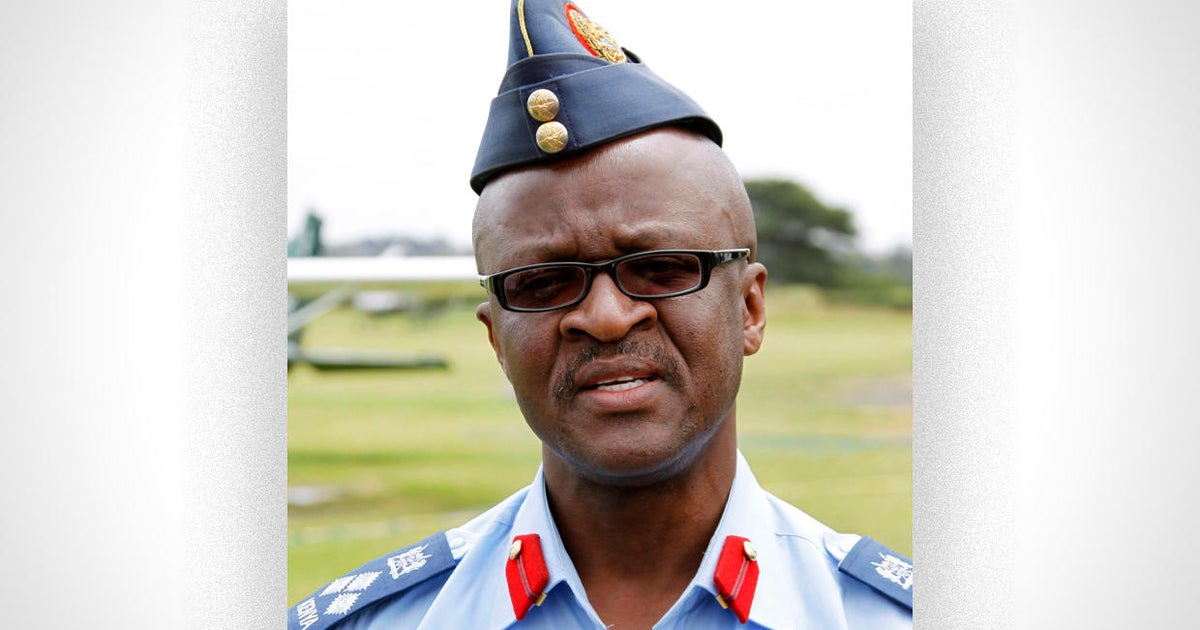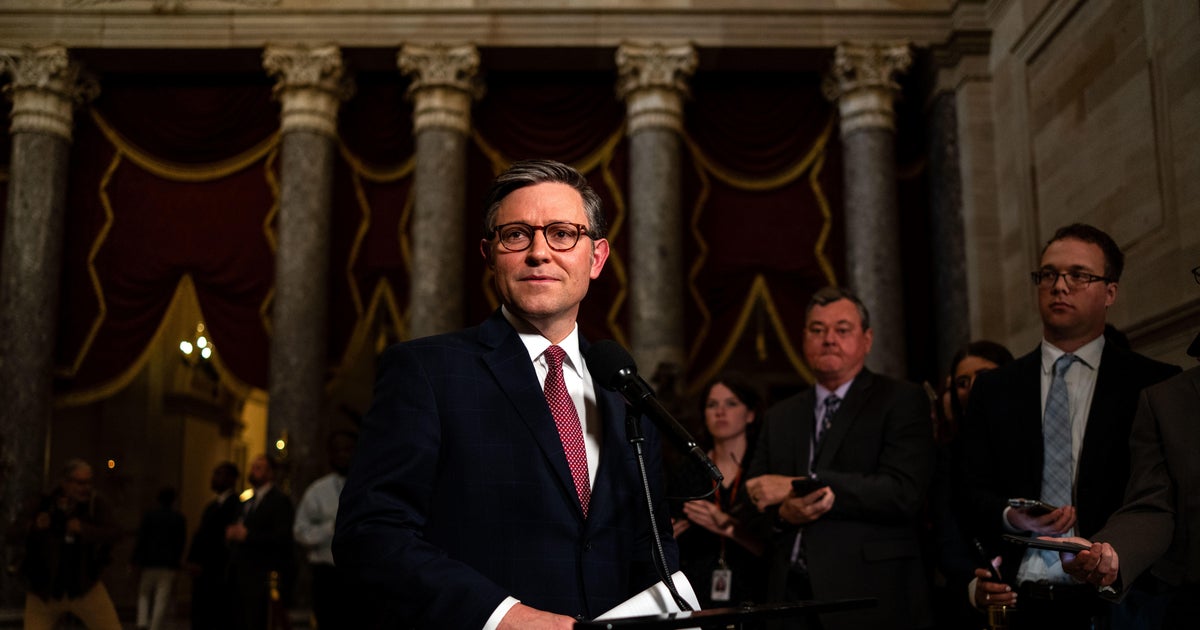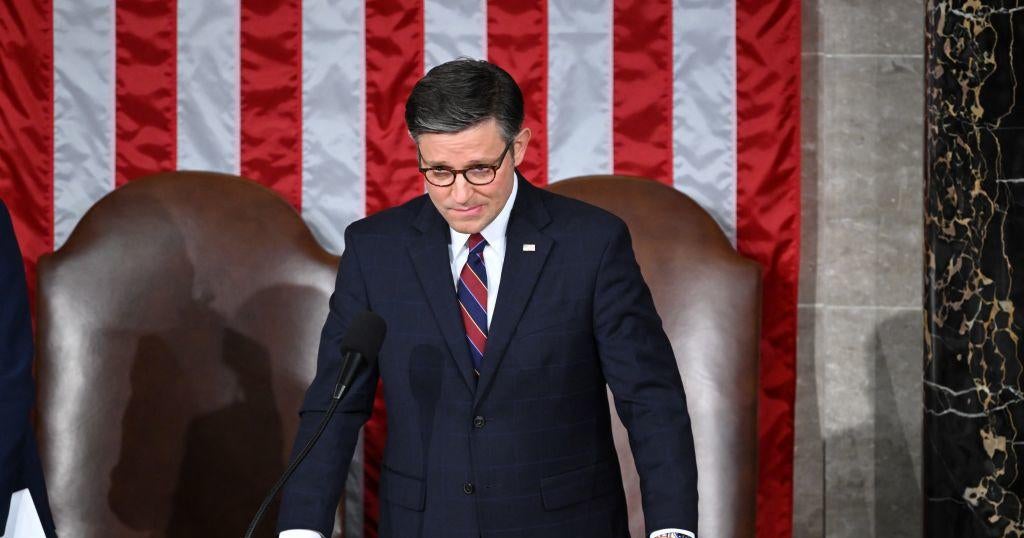Transcript: Adm. Mike Rogers on "Face the Nation," October 18, 2020
The following is a transcript of an interview with retired Admiral Mike Rogers, former commander of U.S. Cyber Command that aired Sunday, October 18, 2020, on "Face the Nation."
MARGARET BRENNAN: We want to turn now to election security and Admiral Mike Rogers. During the last election, he was the head of the National Security Agency and US Cyber Command, which runs military cyberspace operations. Good morning to you. This is--
ADMIRAL MIKE ROGERS: Good morning, MARGARET.
MARGARET BRENNAN: --this is the most watched, potentially most complicated election in the midst of a pandemic that our country has seen. I know in 2016, after the fact, you said you wish more had been done in terms of direct public action before the election took place. What do you think about now? How secure are elections?
ROGERS: So, I am very confident that we're going to have an election that will allow us to vote as citizens, that will accurately reflect the results of that voting and will generate a set of results that we can believe in. I think a lot of work has been done. The biggest challenge to me in some ways is the context in which this election is occurring. We're a very polarized and divided nation right now, and we're in the middle of a significant health crisis. So I think there's a few things we need to be mindful of. The first is the turnout, based on everything we've seen, will hit record levels. We need to be prepared for longer lines and a longer process. There's just a whole lot more voters. And, for example, trying to man polling centers in the midst of a pandemic when historically many of your poll workers are older individuals, for example, it's just going to present a challenge. So it's going to take longer. We should be ready for that. Number two, we need to remember elections are run on a state level, so the processes are different. And what is legal and a structure in one state is not the same in another. We need to recognize that and not view that as, hey, there's something wrong because someone else is doing something differently than I am in this election. Number three, I- I think we need to be mindful it is unlikely that we're going to get a result when we go to bed the night of the election.
MARGARET BRENNAN: Right.
ROGERS: It is very possible, but I think we just need to be ready, given the amount of turnout, given the number of mail in ballots. In some states, for example, Pennsylvania, Michigan, Wisconsin, you can't start counting mail in ballots until the actual Election Day.
MARGARET BRENNAN: Right.
ROGERS: So we need to be ready for a result that doesn't come out that same night. The last two points I would make, I think, remember, our system allows for legal challenges, legal challenges to process, legal challenges to outcome. That doesn't happen historically all that often at presidential levels, but it often happens at congressional and other levels. We need to let that process play out. And lastly, remember, there's time built into this process. States do not actually have to complete the certification process until the middle of December. So let's just be calm. Let's participate. Let's do it peacefully without violence, and then let's let this system play out just as it has for almost two and a half centuries.
MARGARET BRENNAN: No, it's important expectation setting that you just did there. I want to get to your old line of work and your expertise on the intelligence front, because we know U.S. intelligence says that right now Russia is trying to basically manipulate the public, spread disinformation about the election specifically to hurt the Democratic candidate and some Kremlin linked actors trying to boost the president. Can Russia at this point actually change the outcome of the election by altering votes? Do they have that capability?
ROGERS: So, do they have capability? Yes. Is it likely? No, and we haven't seen anything to date that would suggest that we're certainly seeing in cyber the same level of activity that we saw back in 2016. I would say where I think the Russians are doubling down is a little less on cyber activity directed directly against voting infrastructure. Think about voter registration, the actual machines we use to cast ballots, the computer systems we use to tabulate ballot- voting ballots. I don't think you're seeing that same level of activity. Rather, I think, what you're watching the Russians do is really double down on the idea of using disinformation via social media and other paths to attempt- to continue to polarize our nation, to incite violence, to incite hatred and to attempt to pull us apart.
MARGARET BRENNAN: So to that point, you know, there's been a lot of speculation that this week some of the information about Joe Biden's son Hunter that has circulated in tabloid New York Post may be the result of a hack and dump operation. This is speculation at this point that it could have come from Russian military hacking of a Ukrainian gas company where Hunter Biden served. Do you see any justification for that speculation at this point?
ROGERS: MARGARET, I don't know the specifics of this case. Again, my view would be, let's let it play out, let's investigate it, let's get some factual evidence, let's get the metadata and let's see if this is accurate or not. I'm just not in a position--
MARGARET BRENNAN: Right.
RODGERS: --really to speculate. I'm not a fan of speculation--
MARGARET BRENNAN: Well, it's being compared to the hack and dump operation that happened, as you know, back in 2016. A lot of Democrats alleging that it is that. So when you say you see Russia doing a disinformation and access- spreading disinformation, is that the kind of thing you're talking about?
RODGERS: That could be an element. So when you look at a disinformation campaign, you see the Russians using false identities. So you might think you're talking to a fellow American from the Midwest when actually you're talking to a Russian troll in St. Petersburg. So using false identity, using false information, attempting to manipulate images, the use of videos that are distorted to create an impression that is not based in fact, to try to energize individual's emotions, their prejudices, their viewpoints, to galvanize them, to work against, if you will, an outcome that brings us together.
MARGARET BRENNAN: Very quickly, what is the thing to watch on election night to know if our elections are secure or not?
RODGERS: So if you saw an effort on the part of a foreign entity to attempt to manipulate or deny our election processes, the things I would be looking for are, number one, do you see widespread--
MARGARET BRENNAN: Right.
RODGERS: --and I'm not just talking about one or two places, but you see widespread challenges associated with voter registration rolls?
MARGARET BRENNAN: OK.
ROGERS: People show up, they give their license and it doesn't match.
MARGARET BRENNAN: We will watch that--
ROGERS: I will be looking for attempts--
MARGARET BRENNAN: I've got to interrupt you. I'm so sorry, but we will be watching that. Thank you for flagging it. Admiral Rogers, thank you for joining us. We'll be right back.



